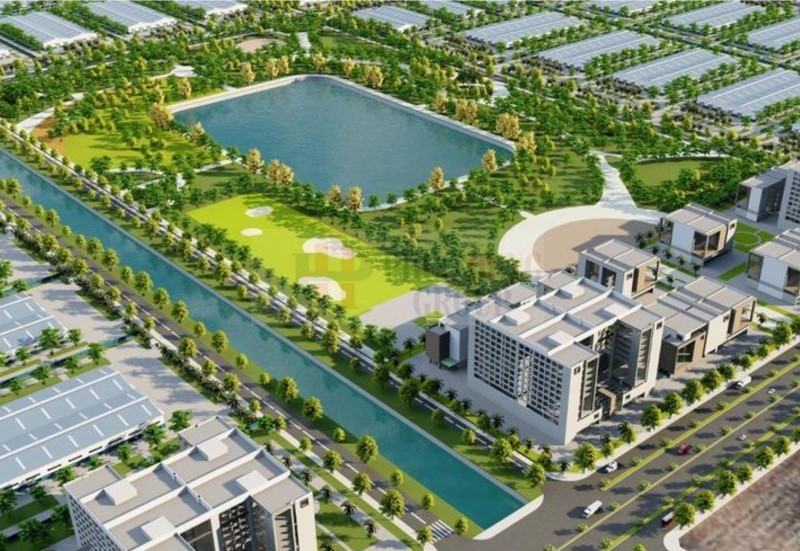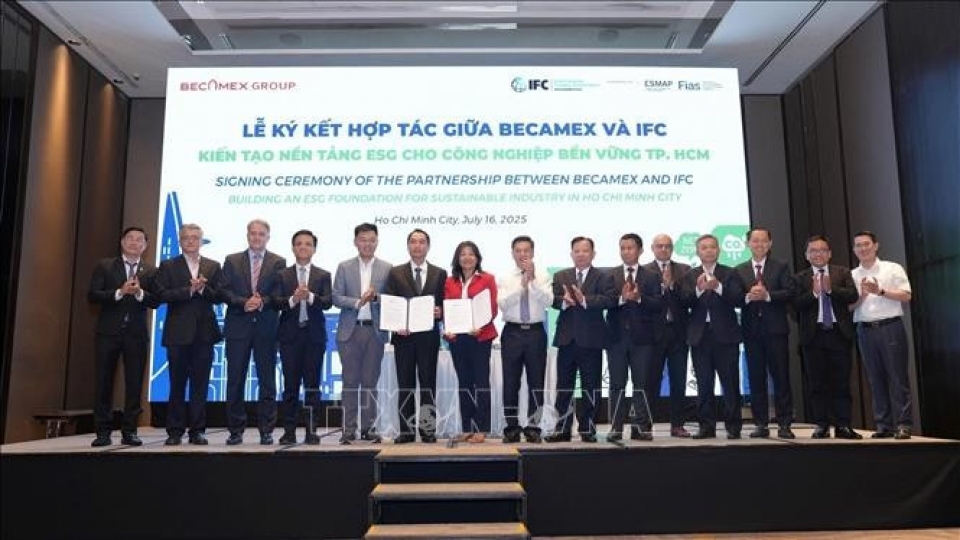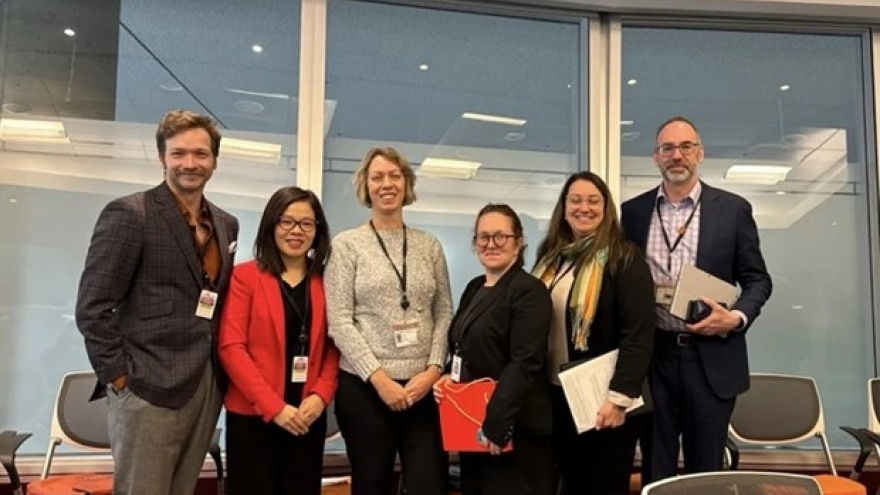High-tech manufacturing boom fuels demand for green IPs in Vietnam
A surge of investment in high-tech projects and R&D centres is driving demand for industrial infrastructure, underpinning growth in Vietnam’s industrial real estate market.

Between 2024 and 2027, the country is expected to add about 15,200ha of industrial land and more than 6 million sq.m of warehouses and ready-built factories.
In its 2025 macroeconomic outlook, the National Financial Supervisory Commission forecast that foreign direct investment (FDI) will continue to flow strongly into Vietnam, particularly into high-value manufacturing and technology areas such as semiconductor, artificial intelligence, digital transformation, logistics and pharmaceutical. Disbursed FDI in 2025 could exceed US$30 billion.
Vietnam is currently among the world’s 15 largest FDI destinations. A cooperation agreement between the Government and US chip giant NVIDIA marked a significant turning point, creating momentum for Vietnam to position itself as a leading AI R&D hub in Asia.
According to real estate consultancy Savills, foreign investors are prioritising factors such as speed of operations—favouring ready-built factories and warehouses; stable electricity supply and access to renewable energy, including dual power systems, backup capacity, direct power purchase agreements (DPPA), and solar energy; and sustainability, including LEED/EDGE-certified projects and green industrial parks.
Connectivity remains key, particularly proximity to seaports, highways, and logistics hubs. Investors also emphasise a transparent legal environment, predictable land-pricing procedures, and a skilled workforce, especially in electronics and semiconductors. As a result, industrial property is no longer viewed simply as land and factory space but as part of a broader ecosystem designed to attract high-quality FDI.
Environmental, social, and governance (ESG) criteria are also increasingly applied to enhance competitiveness.
Green and smart industrial parks are expected to shape Vietnam’s future industrial landscape. Beyond drawing high-quality investment, next-generation parks are set to become growth centres of regions, linking industrialisation with urban development, technology, and environmental goals.
In Ho Chi Minh City, the VSIP III model is seen as a benchmark for green and sustainable industrial development, integrating smart technologies across energy, water, and waste management, as well as traffic and security systems. As a result, the park has succeeded in attracting “green” investments from Lego, Pandora and Giant—global groups that commit capital only to locations with clean energy and carbon-neutral pathways. These projects not only bring capital but also set new development standards for industrial parks in Vietnam.
“Investors today not only pay attention to rental prices or location but are also seeking industrial parks that provide a comprehensive and environmentally friendly ecosystem,” said Truong Khac Nguyen Minh, Deputy CEO of the Prodezi Long An Joint Stock Company.
He added that from the outset, his company has focused on sustainable development, value-added solutions, and an eco-industrial park model integrating ESG standards and circular-economy principles to deliver energy-efficient and environmentally friendly production spaces.
Frasers Property is also maintaining its medium- and long-term expansion strategy in Vietnam. Its leadership said the developer is closely tracking market trends to refine its investment attraction strategy, prioritising sectors less exposed to US market volatility such as consumer electronics, semiconductors, data centres and home appliances—all aligned with Vietnam’s high-tech development agenda.
Industrial-park infrastructure firms are likewise adjusting their strategies. Viglacera Corporation, for example, commenced construction of the second phase of Song Cong II Industrial Park on March 10. Once operational, the zone is expected to become an ideal investment destination and contribute significantly to local and national growth.
Viglacera is aligning its development strategy with the “green transition”, focusing on smart and eco-industrial parks to attract investment to high-tech and environmentally friendly supporting industries, reinforcing its commitment to sustainable and technology-driven growth.



